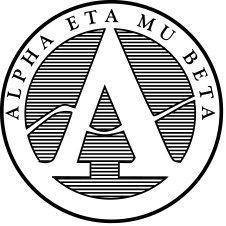BME Shadow Day 2012 - Lab Information
Joseph W. Freeman: Repair of musculoskeletal tissues; biomechanics; tissue engineering.
The Musculoskeletal Tissue Regeneration (MoTR) Laboratory primarily focuses on the repair and regeneration of tissue, mainly musculoskeletal tissue, through the use of tissue engineering techniques. We also investigate mechanisms of tissue damage and healing, cancer development, and molecular modeling of structural proteins
Charles M. Roth: Tissue engineering, gene-based probes, signal transduction.
Our research involves the application of molecular and nanobioengineering approaches to cancer and to other biomedical problems. Much of our work centers on the development of technology for efficient gene silencing (using antisense or short interfering RNA). Current projects include: 1) novel lipid-polymer formulations for effective systemic and intracellular delivery of oligonucleotides; 2) silencing of osteogenic genes to prevent heterotopic ossification; 3) nanobioengineering of novel imaging agents toward image-guided tumor therapies; 4) understanding and targeting tumor stem cells; 5) surface and metabolic engineering of hepatocyte culture.
Stavroula Sofou: Biomembranes, drug delivery, tissue engineering.
Our group works on Biomembranes and Drug Delivery Systems. We investigate the intermolecular and interfacial interactions determining the morphology and collective properties of self-assembling heterogeneous biomembranes. We use these materials to engineer lipid-based carriers of diagnostics and therapeutics for medical applications. Current projects include: environmentally responsive liposomes to improve transport and trafficking of chemotherapeutics in solid tumors, multifunctional liposomes for antivascular therapy, lipid-based carriers for targeted internal radiotherapy.
Prabhas V. Moghe: Stem cells, nanobiomaterials, tissue engineering, regenerative medicine, skin/wound healing.
The Moghe laboratory works on the development and characterization of cell-interactive biomaterials for accelerated tissue repair and stem cell-based regenerative medicine. Current projects include nanobiomaterials ("nanolipoblockers") for cardiovascular medicine and wound healing/skin tissue engineering; novel imaging modalities for cell-based profiling of polymeric biomaterials; design and analysis of 3-D scaffolds for controlled human embryonic stem cell expansion and differentiation.
David I. Shreiber: CNS repair, biomechanics, BioMEMS, tissue engineering, stem cells.
We are interested in understanding Central Nervous System injury, repair, and regeneration. We study the tissue and cellular biomechanics associated with traumatic injury using in vivo, in situ, and computational models. We attempt to dictate cell migration and axon regeneration by imposing spatial patterns of mechanical properties and bioactivity in collagen gels using BioMEMS. Finally, we use in vitro and computational models to investigate mechanotransduction as a mechanism underlying the response to acupuncture.
Martin L. Yarmush: Differentiation of stem cells, tissue engineering, cancers, traumatic brain injury.
In our lab, we investigate a variety of biomedical problems on multiple levels (molecular, cellular, tissue, and whole animal). Our current efforts involve developing: 1) a new technique using encapsulated mesenchymal stem cells to treat spinal cord injury; 2) new cancer vaccines, 3) methodology for defatting cells and organs; 4) new technologies for healing chronic wounds; 5) microfabricated brain-on-a-chip systems for studying traumatic brain injury; 6) allergy-on-a-chip microsystems for replacing animal testing; and 7) an automated robotic venipuncture device.
Rene Schloss: Manipulation of cellular responses for applications in biotechnology, bioengineering and medicine.
Our laboratory focuses on developing bioengineering approaches to attenuate tissue inflammation via alginate encapsulated Mesenchymal stem cells, 2) understand traumatic central nervous system injury events and 3) differentiate stem cells into mature and functional lineages.
Francois Berthiaume: Regenerative medicines, metabolic engineering, liver, stem cells for skin and wounds.
My research areas encompass Metabolic and Tissue Engineering. In the former, we are developing a systems biology framework to characterize and treat the metabolic derangements of disease. Cellular metabolism occurs within a complex network of chemical reactions, is regulated at multiple levels (metabolites, proteins, genes and so on), and therefore therapies require a combination of approaches to simultaneously address multiple targets. We apply this framework in the context of two different applications: metabolic abnormalities associated with complex diseases, such as adult-onset diabetes, cancer, trauma, and so on, and metabolic reconditioning of organs that are rejected from the donor pool. In the area of Tissue Engineering, our focus is to develop methods that attract stem cells to a site of injury in order to promote faster wound healing and reduced scarring. Our goal is to elucidate this mechanism and to develop methods that enhance it using a combination of implantable polymeric scaffolds and stem cell attracting agents. We are specifically interested to use this strategy for improving the healing of skin wounds, in particular deep skin wounds that are susceptible to infection and scarring, as well as non-healing and chronic wounds, such as diabetic ulcers, venous ulcers, and bed sores.
Mark Pierce: Optical imaging for cancer.
In our laboratory, we develop optical imaging systems for diagnosis and management of cancer. Our current clinical focus is on cancers of the head & neck and gastrointestinal tract. We are also committed to the design of instruments which will benefit underserved populations in industrialized and developing countries.
Jeffrey D. Zahn: BioMeMS, microfluidics, tissue engineering.
Dr. Zahn`s research focuses on the development of microfluidic devices for point of care clinical diagnostics and health management. His research combines analytical and numerical modeling of microscale phenomena with device design, fabrication, and testing of microfluidic components in an adaptive and iterative process for device optimization. Dr. Zahn`s current research projects include: multiphase microfluidics and electrohydrodynamics for DNA Purification, the use of transverse electrokinetics for DNA concentration, and the development of blood separation and blood plasma biomarker analysis microdevices.
